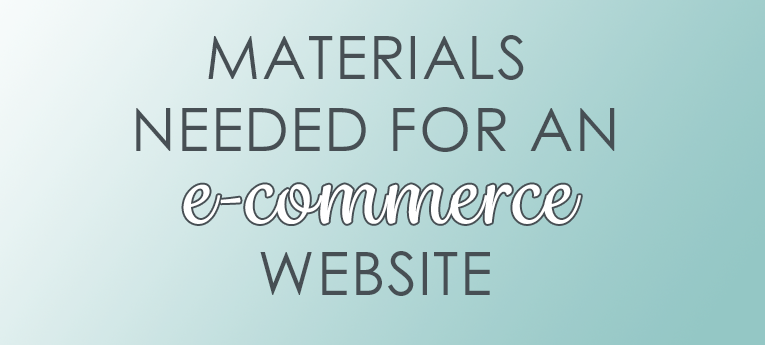1. Regular Website Content
Much like a regular website, an e-commerce store needs the fundamentals. A homepage, about, product/services overview, and a contact page. To accompany these pages, it’s best to have photos available. If your organization does not have many photos, provide direction on what types of stock photos to obtain. Or provide contact information for any distributors you work with as they may have product photos you can use. For more information about these materials, click to read more about the Types of Content Your Web Developer Will Need.
2. Product List (Organized)
3. Product Photos (Show A Variety)
4. Clear Order Fulfillment Process
Standard WooCommerce features include notifications for when an order placed and complete (shipped). Built-in WooCommerce features are great for most clients. However, some clients need to additional steps. For example, our friends at Close To Your Heart Memory Beads have a unique fulfillment process. They send their customers a kit, the customers send it back, they complete the memorial bead order, and then ship the memorial bead to the customer. Close To Your Heart keeps their customers updated along the way with a couple clicks of a button as they complete the order.
5. Shipping Information
In addition to having a clear order process, what shipping methods are going to be available to your shoppers? Whether you configure a set shipping and handling rate or utilize an existing carrier’s API, your developers need to know the logistics to configure your webstore. For more information about different shipping options available for WooCommerce stores, click here.
Some important shipping considerations include: will you have free shipping options? How many items from your store fit into a single package? Web developers can write rules such as orders over $75 ship free. They also use calculations to determine variable shipping costs.
6. Organizational Customizations
7. Payment Processing Information
For beginners especially, we recommend the Stripe Payment Gateway for its ease of use and affordable integration. If you are looking to work with Zen or another WooCommerce developer, read about Types of Payment Processors for WooCommerce.

8. Sales Tax Information
9. Other Considerations
Get it together.

